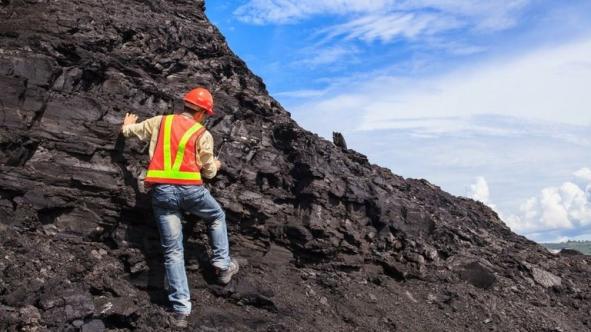Bachelor in Geology
-
Schedule
regular course
- ECTS Credits 180
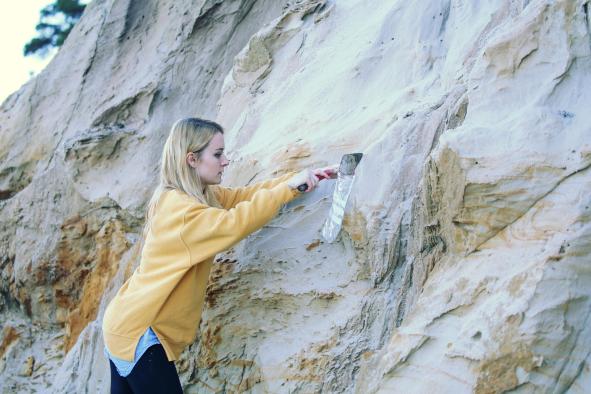
From the first year, in addition to basic training in mathematics, physics, chemistry and biology, you explore the basics of geography and geology.
.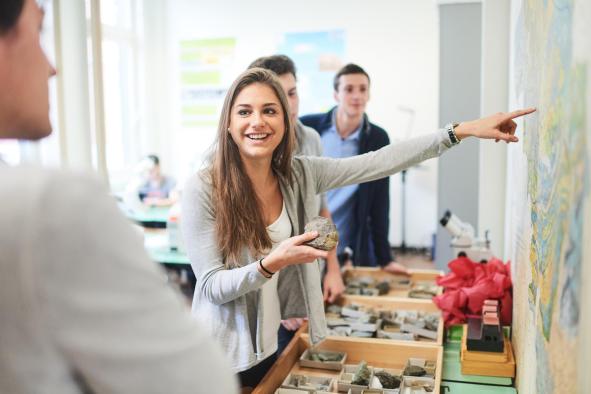
In the second and third years, the basic sciences remain on the curriculum and are gradually applied to the study of the subsoil and the Earth (geochemistry, geophysics, etc.). Your knowledge and skills as a geologist are developed through a wide range of thematic courses: sedimentology, paleontology, mineralogy, crystallography, petrology, mineral resources, geological mapping, hydrogeology, geomorphology and structural geology.
During the bachelor's degree, you learn to make field observations and process geological data using quantitative tools.
The cycle ends with a one-week internship abroad and supervised personal work, thanks to which you put into practice the skills you have acquired and prepare for the rest of your training.
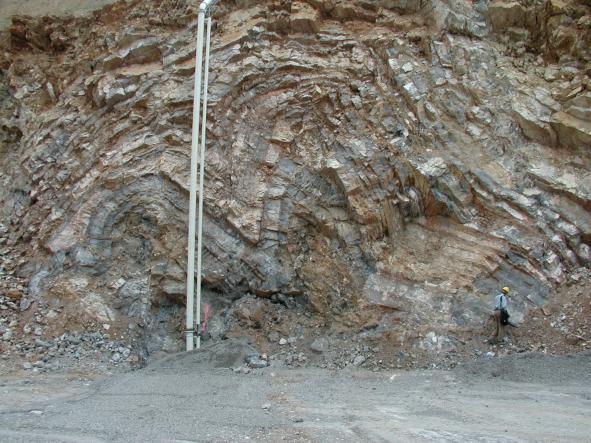
You're off to a good start
- you're passionate about natural phenomena and want to unlock the secrets of the Earth;
- you're good at schematizing or drawing in a simplified way what you observe;
- you enjoy the mathematical, physical, chemical and biological sciences without necessarily having followed a strong program in high school;
- you love the field and contact with nature;
- you know how to adapt to living and traveling conditions that aren't always comfortable, but exhilarating.
Teaching methods
Courses, exercise sessions, practical laboratory work, field days and internships... everything is done to ensure excellent mastery of concepts and the development of practical skills.
Organized in small groups, practical work and laboratories enable you to assimilate material and go deeper into concepts under the supervision of an assistant.
Excursions and internships are essential for a natural science like geology. That's why, in addition to exercises and laboratory work, you take part in real-life days to put your discipline into practice.
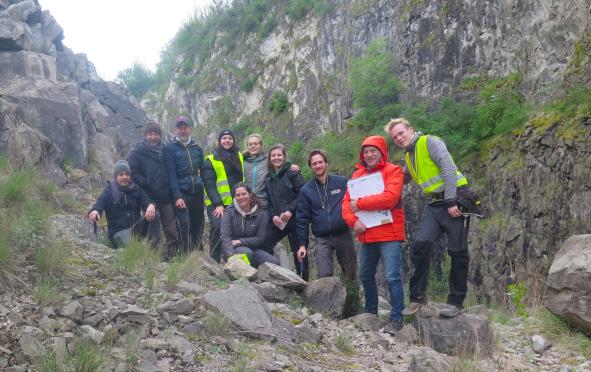
As part of the bachelor's final personal assignment, you will carry out original research (fundamental or applied) including the acquisition of new results (in the laboratory and/or in the field) and their interpretation.
International experience
Would you like to combine your studies with a unique cultural experience and/or language immersion?
This is possible thanks to the Erasmus program offered in the third year of your bachelor's degree. You can carry out this study stay in Flanders or in Europe (for example at the KULeuven or the UniLaSalle-Beauvais institute).
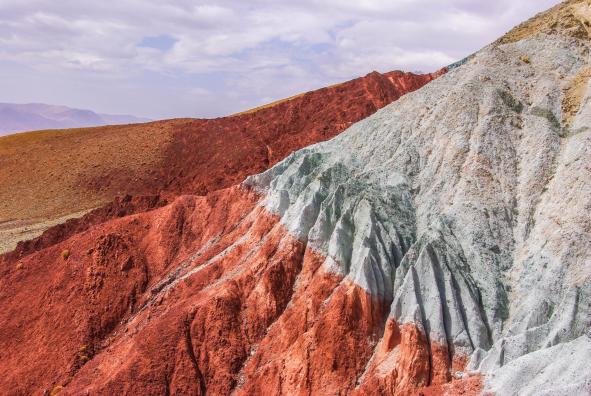
Success aids
Succeeding in a year of study at university involves many challenges.
To help you meet them, we support you in developing your disciplinary, methodological and human skills... with the support of numerous professionals.
After the baccalauréat: the master's degree
A few months before the end of your bachelor's degree, a meeting with the heads of various master's programs will help you to decide what to do next.
The bachelor's degree in geological sciences at UNamur naturally opens the door to the master's degree in geological sciences offered by the universities of the Wallonia-Brussels Federation, but also allows you to consider continuing your studies abroad. Other master's degrees are also available: oceanography, environment, mining engineering, volcanology...
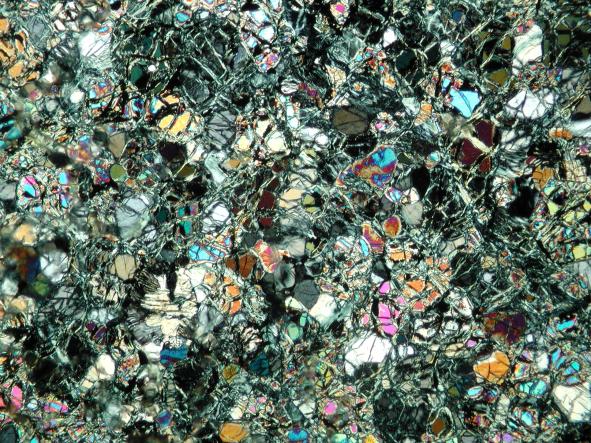
-
<unknown>
-
<unknown>
-
<unknown>
Code Name Staff Th.+Ex. Credits/Block 1 2 3 SGOGB102 Cartographic representations Linard Catherine Linard Catherine 30h th. + 20h ex. 4 SGOGB101 Fundamentals of Geography - Territorial Analysis Dendoncker Nicolas 15h th. + 20h ex. 3 SGOGB110 Fundamentals of Geography - Land in Geography Dendoncker Nicolas 21h ex. 2 SGOLB106 Geography and Geology of Belgium Yans Johan Dendoncker Nicolas 30h th. + 14h ex. 4 SGOGB201 Introduction to Geographic Information Systems Linard Catherine DUJARDIN Sébastien 15h th. + 20h ex. 4 SGOGB301 Modelling and analysis of geographic information Linard Catherine Brogna Delphine 20h th. + 30h ex. 4 -
<unknown>
Code Name Staff Th.+Ex. Credits/Block 1 2 3 SBIOB120 Data management in life sciences, basic principles De Laender Frédérik 8h th. + 12h ex. 2 SBIOB220 Advanced data management in life sciences Lima Mendez Gipsi 12h th. + 15h ex. 2 -
<unknown>
Code Name Staff Th.+Ex. Credits/Block 1 2 3 SSPSB101 Philosophical questions Sartenaer Olivier Modera Astrid 22.5h th. + 7.5h ex. 2 Translated with DeepL.com (free version)SSPSB102 Religious Studies: Anthropology, Metaphysics and Science Leyens Stéphane Cazalis Roland 30h th. 2 -
<unknown>
Code Name Staff Th.+Ex. Credits/Block 1 2 3 SSPSB204 Logic and argumentation Sartenaer Olivier Sartenaer Olivier 22.5h th. 2 SSPSB202 History of science Sartenaer Olivier 22.5h th. 2 SSPSB203 Psychology Ravez Laurent 22.5h th. 2 SSPSB307 Formal logic Sartenaer Olivier 15h th. 2 SSPSB308 Philosophy of science Sartenaer Olivier 15h th. 2 SSPSB309 Ethical Leyens Stéphane LAURENT Nathanaël 15h th. 2
-
-
<unknown>
Code Name Staff Th.+Ex. Credits/Block 1 2 3 SELVB103 Introduction to Scientific English (level B1 and above) Tréfois Cindy 30h th. 3 SELVB303 English : Debating Science (level B2 minimum) Tréfois Cindy 30h th. 3 SELVB203 English : Communicating Sciences Effectively (level B1 and above) Tréfois Cindy 30h th. 3 -
<unknown>
Code Name Staff Th.+Ex. Credits/Block 1 2 3 SBIOB003 Pluridisciplinary scientific field trip Yans Johan Silvestre Frédéric Yans Johan Silvestre Frédéric 48h th. + 48h ex. 3 3
-
<unknown>
Code Name Staff Credits Hours/Quarter 1 2 SPHYB167 Physics supplements Louette Pierre 3 25h th. + 10h ex. SCHIB111_P35309 General chemistry Wouters Johan 5 40h th. + 15h ex. SPHYB113 Syllabus, webcampus, Teams. Colaux Julien 3 25h th. + 11h ex. SMATB110 Mathematical complements De Vleeschouwer Martine 3 15h th. + 15h ex. SMATB111 Mathematics Daquin Jérôme 3 30h th. + 15h ex. SPHYB124_P35419 General physics: Mechanics HEUSKIN Anne-Catherine 6 46h th. + 30h ex. SBIOB114 Elements of biology adapted to darwinian evolution Messiaen Johan 2 15h th. SCHIB112_P36776 General chemistry of solutions Dehon Jérémy 3 25h th. + 10h ex. -
<unknown>
Code Name Staff Credits Hours/Quarter 1 2 SGOLB111 Geological fieldwork Collinet Max 2 21h ex. SGOLB131 General geology 1 Collinet Max 4 30h th. + 7h ex. SGOLB132 General geology 2 Collinet Max 3 15h th. + 26h ex. FINT0043 Global change and the Anthropocene Yans Johan Dendoncker Nicolas Houssiau Laurent Linard Catherine Henry Sabine Poulain Amael Yans Johan 3 24h th. -
<unknown>
Code Name Staff Credits Hours/Quarter 1 2 SGOGB102 Cartographic representations Linard Catherine Linard Catherine 4 30h th. + 20h ex. SGOGB101 Fundamentals of Geography - Territorial Analysis Dendoncker Nicolas 3 15h th. + 20h ex. SGOGB110 Fundamentals of Geography - Land in Geography Dendoncker Nicolas 2 14h ex. 7h ex. SGOLB106 Geography and Geology of Belgium Yans Johan Dendoncker Nicolas 4 30h th. + 14h ex. -
<unknown>
Code Name Staff Credits Hours/Quarter 1 2 SSPSB101 Philosophical questions Sartenaer Olivier Modera Astrid 2 22.5h th. + 7.5h ex. Translated with DeepL.com (free version)SSPSB102 Religious Studies: Anthropology, Metaphysics and Science Leyens Stéphane Cazalis Roland 2 30h th. -
<unknown>
Code Name Staff Credits Hours/Quarter 1 2 SELVB103 Introduction to Scientific English (level B1 and above) Tréfois Cindy 3 15h th. 15h th.
-
<unknown>
Code Name Staff Credits Hours/Quarter 1 2 SCHIB206_P35582 Introduction to scientific software Leherte Laurence 2 6h th. + 18h ex. SCHIB201_P35571 Physical chemistry: equilibrium Liégeois Vincent Leherte Laurence 7 30h th. + 7.5h ex. 15h th. + 36.5h ex. SBIOB205_P36526 <unknown> De Laender Frédérik 4 24h th. + 22.5h ex. SBIOB207 Functional and adaptive biology Thoré Eli 5 40h th. + 25h ex. -
<unknown>
Code Name Staff Credits Hours/Quarter 1 2 SCHIB209_P35574 Tools and methods applied to Chemistry and Geology Leherte Laurence 2 15h th. + 10h ex. SGOLB218 Mapping of sedimentary rocks Collinet Max 2 15h th. + 22h ex. SGOLB219 Sedimentary rock mapping course Collinet Max 3 42h ex. SGOLB217 Introduction to mineralogy and petrography Collinet Max 5 15h th. + 44h ex. SGOLB210_P36532 <unknown> Smith Thierry 5 24h th. + 40h ex. SGOLB202 Physical geography and geomorphology Collinet Max Graveleau Fabien 5 30h th. + 23h ex. SCHIB207_P35446 Introduction to radiocrystallography, mineralogy and petrography Yans Johan Wouters Johan 3 15h th. + 15h ex. SGOLB203 Introduction to sedimentology Yans Johan 4 20h th. + 26h ex. -
<unknown>
Code Name Staff Credits Hours/Quarter 1 2 SGOGB201 Introduction to Geographic Information Systems Linard Catherine DUJARDIN Sébastien 4 15h th. + 20h ex. -
<unknown>
Code Name Staff Credits Hours/Quarter 1 2 SBIOB120 Data management in life sciences, basic principles De Laender Frédérik 2 8h th. + 12h ex. SBIOB220 Advanced data management in life sciences Lima Mendez Gipsi 2 12h th. + 15h ex. -
<unknown>
-
<unknown>
Code Name Staff Credits Hours/Quarter 1 2 SSPSB204 Logic and argumentation Sartenaer Olivier Sartenaer Olivier 2 22.5h th. SSPSB202 History of science Sartenaer Olivier 2 22.5h th. SSPSB203 Psychology Ravez Laurent 2 22.5h th.
-
-
<unknown>
Code Name Staff Credits Hours/Quarter 1 2 SELVB203 English : Communicating Sciences Effectively (level B1 and above) Tréfois Cindy 3 15h th. 15h th. -
<unknown>
Code Name Staff Credits Hours/Quarter 1 2 SBIOB003 Pluridisciplinary scientific field trip Yans Johan Silvestre Frédéric Yans Johan Silvestre Frédéric 3 48h th. + 48h ex.
-
<unknown>
Code Name Staff Credits Hours/Quarter 1 2 SCHIB203_P35577 Analytical chemistry Mekhalif Zineb 5 30h th. + 51h ex. SBIOB328 Multivariate statistics and geostatistics Lima Mendez Gipsi 4 22.5h th. + 22.5h ex. -
<unknown>
Code Name Staff Credits Hours/Quarter 1 2 SGOLB303 Environment and geology Engels Patrick Poulain Amael 4 20h th. + 30h ex. SGOLB301 Structural geology Saint-Bezar Bertrand 3 15h th. + 20h ex. SGOLB313 Geophysics Louette Pierre Collinet Max 3 15h th. + 23h ex. SGOLB302 Sedimentology Clausen Sébastien 4 20h th. + 23h ex. SGOLB304 Micropaleontology Yans Johan 3 15h th. + 12h ex. SGOLB306 Metallogeny Yans Johan 4 25h th. + 20h ex. SGOLB307 Magmatic and metamorphic petrology Yans Johan Namur Olivier 6 20h th. + 36h ex. SGOLB308 Geochemistry and mineralogy Yans Johan Storme Jean-Yves 3 15h th. + 15h ex. SGOLB309 Mapping of endogene rocks Yans Johan 6 40h th. + 80h ex. SGOLB311 Personal works Collinet Max Yans Johan 6 25h ex. 25h ex. -
<unknown>
Code Name Staff Credits Hours/Quarter 1 2 SGOGB301 Modelling and analysis of geographic information Linard Catherine Brogna Delphine 4 20h th. + 30h ex. -
<unknown>
-
<unknown>
Code Name Staff Credits Hours/Quarter 1 2 SSPSB307 Formal logic Sartenaer Olivier 2 15h th. SSPSB308 Philosophy of science Sartenaer Olivier 2 15h th. SSPSB309 Ethical Leyens Stéphane LAURENT Nathanaël 2 15h th.
-
-
<unknown>
Code Name Staff Credits Hours/Quarter 1 2 SELVB303 English : Debating Science (level B2 minimum) Tréfois Cindy 3 15h th. 15h th. -
<unknown>
Code Name Staff Credits Hours/Quarter 1 2 SBIOB003 Pluridisciplinary scientific field trip Yans Johan Silvestre Frédéric Yans Johan Silvestre Frédéric 3 48h th. + 48h ex.
Les métiers des géologues
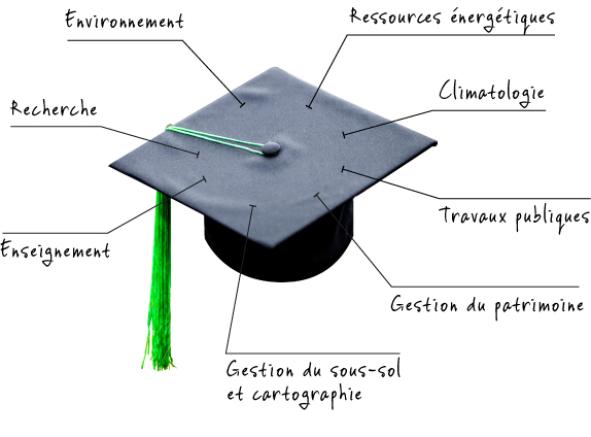
Geologists' professions
In geology, geochemistry, hydrogeology, mineral resources and geophysics are currently in high demand.
In Europe, many consulting firms and public authorities hire geologists to carry out part of the environmental studies required for all new industrial sites (factories, cowsheds, etc.) or engineering structures (bridges, freeways, buildings, etc.) to include an impact study (quality of foundations, risks of aquifer contamination, etc.). Geologists work with interdisciplinary teams, enabling them to broaden their areas of expertise.
Fundamental and applied research is carried out at universities, the Royal Belgian Institute of Natural Sciences, the Walloon Region, Public Works (major works and site protection) and certain mining, cement and glass industries. Industrial and mining research focuses as much on prospecting as on the management and protection of extraction sites, the environment and groundwater. Whatever direction you choose, training as a geologist remains highly valued in the industrial world thanks to the quality of the grounding acquired in physics, chemistry, mathematics...
Abroad, especially in the context of technical assistance to developing countries, several job opportunities open up every year in the extractive industry, geological and hydrogeological prospecting, as well as in higher education.
Specializations complementary to the Master's degree can be completed in 1 or 2 years and remain in demand, especially if they involve diplomas or certificates acquired abroad. Of particular note are mineral resources, hydrogeology, geochemistry, geophysics and the environment.
In addition, the solid grounding acquired in the basic sciences enables geologists to teach chemistry, physics, biology and geography in the upper secondary cycle (4, 5 and 6e), which is currently in high demand.
The geology degree enables you to practice a wide range of specialties: from paleontology to the extraction of subsoil resources (including water) to the study of meteorites, all with plenty of scope for travel. For two years, I was lucky enough to work as a geologist in a gold mine in northern Quebec. My daily routine was focused on finding the right veins. I was able to draw on all the skills I'd acquired in Namur to quickly analyze and understand the deposit I was mining. These skills were much appreciated and sought after by my bosses. I'm currently working in the environment sector in Belgium, but there's always the possibility of field campaigns abroad if I get the urge again.
Pierre, former student
